Welcome to Camp Americana, where bygone pop culture wars return for an airing—and to prove that everything old is new again.
Both men were homegrown, self-made, and every week reached audiences in the millions with messages that couldn’t have been more different. Gore Vidal and William F. Buckley’s highbrow 1968 debates might’ve made the two synonymous with urbane, stinging public discourse, but neither could hold a candle to the less mentioned, more prescient, personal and political headbutting between the Southern preacher and the Hollywood sitcom producer that spilled over into TV, print, and the U.S. Senate for a full decade, a hatred that would help lay groundwork for contemporary political ideologies and, at maybe its most climactic moment, involve a current Presidential nominee.
Five of 1974’s 10 most-watched shows were Norman Lear’s, but his style of topical TV liberalism was going out of style just in time for America’s Bicentennial. Garry “The Male Penny” Marshall’s plucky, apple-pie-ass-kissing nostalgia was on top. Democrat Jimmy Carter only ju-u-ust squeaked past incumbent Gerald Ford in a ‘76 victory. At least in hindsight, the handwriting was on the pre-DJT wall: Conservatives would survive Nixon into the ‘80s.
A restless Lear, the son of a Connecticut con man, announced his departure from TV in 1978. “The end of an era,” some critics called it, as the creator of All in the Family, Maude, and One Day at a Time prepared for his exit (though Lear stayed on in a consulting capacity). One project he mentioned his production company pursuing was a sitcom about a nun on a one-woman crusade to clean up the church. Sounds wacky! But while Soul Sister or whatever was still being considered, a real-life helluva Bible thumper was just starting a crusade of his own that would drag Lear out of his brief hiatus, ready for a fight.
Jerry Falwell Sr. was the son of a Lynchburg bootlegger who, back in America’s first heady year without polio, 1956, started a church in an abandoned factory with just a 35-man-woman-and-child flock. By the early ‘70s, he’d risen as a powerful voice of conservative Christianity, a critic of Dr. King, a founder of universities with, naturally, a Christ-centric curriculum (waging all sorts of uproars over desegregation), and his Old-Time Gospel Hour was seen by millions of viewers on hundreds of stations from sea to shining sea. The preacher man wasn’t a screaming-shouting-sanctified panhandler like most others on TV, but a fundamentalist who eschewed flamboyant televangelical glitz for strict morality.
Still, that same morality didn’t stop him from barnstorming dozens of state capitals in ‘76 with “I Love America,” an imaginatively-titled series of live spectacles encouraging Christians to get political, gosh darn it! Three years later, in time for the 1980 election, Falwell mobilized millions of voters under the formal banner of “The Moral Majority,” and they swept Ronnie Reagan into the Oval Office on the wings of angels, to hear them tell it. Despite acts like Christian karate masters chopping blocks of ice in half and enough folksy family singers to fill the Astrodome twice over, The Old Time Gospel Hour never once hit the top 10, or even the top 20, but it was effective enough: God, it seemed, was suddenly and exclusively property of the Republican Party.
In the Beginning, the nun sitcom made without Lear’s real involvement, aired for five episodes in the fall of ‘78. Pity—though how could it have lasted with Sally Field’s landmark, airborne role still so fresh in America’s memory? When Lear sat down in 1980 with the idea for a movie about a televangelist and binged nearly four full days’ worth of Pat Robertson, Falwell, and Jimmy Swaggart, the TV veteran had seen enough. All plans for the film Religion were dropped and instead he founded the People for the American Way PAC in 1981, an organization dedicated to pushing back against right-wing extremism. More succinctly, it was the unofficial-but-official anti-Moral Majority, of which Lear said “is neither the moral point of view, nor the majority.”
Falwell, just a “good ol’ boy” despite his private jet, knew fightin’ words when he seen’t’um and lashed out, calling Lear “the No. 1 enemy of the American family.” Other televangelists started hooting in unison, drubbing the Hollywooded Lear as an “atheistic Jew” and an “anti-family” “anti-Christian.” Lear told the Washington Post that “to an anti-Semite, a wealthy Jew is different from someone else who is wealthy. The Rev. Falwell trades in that in a consistent and smarmy fashion,” and repeated to all and sundry that he was simply trying to stop the invasion of the far-right into legislation under the mask of religion.
If Falwell hauled “I Love America” from village square to village square with The Lord supposedly on his side, the power of primetime broadcast television was undoubtedly on Lear’s. In the spring of ‘82, the PFAW staged I Love Liberty, a flag-waving, star-spangled, two-hour ode to, essentially, “patriotism, battlefields, and diamond tiaras” on ABC. Everybody from Jane Fonda to former GOP presidential nominee Barry Goldwater, Streisand to Miss Piggy, Sinatra to Jimmy Buffett appeared to explain—sometimes in song!—why they loved democracy. Falwell, by then mainstream and politically powerful enough to ask Lear if he could deliver a short, snappy, showbizzy sermon on the night of dozens of stars, was turned down. Lear, a Jewish man so dedicated to freedom of speech that he once worked with the ACLU to allow Neo Nazis to hold a march, explained to the press that a one-man orator just wasn’t the right fit for the occasion.
After Norman’s primetime middle finger to Jerry—aren’t their first names so fabulously banal for such high stakes?—the battle moved behind the cameras and into political spheres. The Moral Majority swept Reagan into a second term with another decisive victory while, in 1987, the PFAW ran a campaign instrumental in stopping the appointment of Robert Bork, Reagan’s pick for the Supreme Court who was being heartily endorsed by a dire-sounding Falwell. Lear’s campaign worked—though Senate Judiciary Committee Chairman Joe Biden rushed to say they hadn’t been directly persuaded by the producer—and former Democrat Reagan called Bork’s rejection “a lynching.”
Hurting wallets sent both Norman Lear and Jerry Falwell more or less staggering out of full-time politics that same year. Lear was smarting from a nine-figure divorce settlement that practically halved his estate and sent him looking to television to recoup his losses, while Jerry was busily, publicly taking over Jim and Tammy Faye Bakker’s monumental PTL (Praise the Lord) media empire after a sexual conduct scandal that popped up everywhere from Saturday Night Live to the covers of People and Playboy. Accused by Bakker of “stealing” his crumbling kingdom, Jerry responded on national TV with, “To say that Jerry Falwell stole PTL is like accusing someone of stealing the Titanic just after it hit the iceberg.”
After taking the reins in April 1987, Falwell resigned that October, the same month Bork didn’t get the job, sick of trying to untangle the Gordian knot of financial problems Bakker left in the wake of his frantic embezzling. Just days later, tired of being a “lightning rod” of public scrutiny, Falwell also resigned as the head of the Moral Majority which ultimately folded in 1989.
The dust had settled: Jesus was a Republican, and “the Religious Left” was simply not a thing. But three months before Bill Clinton’s 1992 victory over incumbent George H.W. Bush, Lear warned in an op-ed: “The fact is that the Religious Right hasn’t been much of a photo opportunity the past few years because some of their biggest stars haven’t been standing in the cameras’ lights. But the media’s failure to get the picture in focus doesn’t mean it’s not there.”
Get real time update about this post category directly on your device, subscribe now.




